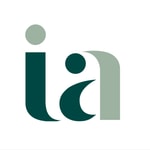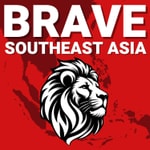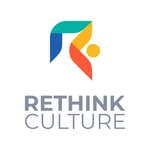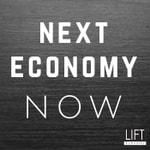Invest Africa Insights – Détails, épisodes et analyse
Détails du podcast
Informations techniques et générales issues du flux RSS du podcast.

Invest Africa Insights
Invest Africa
Fréquence : 1 épisode/33j. Total Éps: 84

Classements récents
Dernières positions dans les classements Apple Podcasts et Spotify.
Apple Podcasts
🇬🇧 Grande Bretagne - businessNews
15/04/2025#87🇬🇧 Grande Bretagne - businessNews
14/04/2025#67🇬🇧 Grande Bretagne - businessNews
13/04/2025#49🇬🇧 Grande Bretagne - businessNews
28/03/2025#96🇬🇧 Grande Bretagne - businessNews
27/03/2025#61🇫🇷 France - businessNews
28/01/2025#96🇫🇷 France - businessNews
27/01/2025#88🇫🇷 France - businessNews
26/01/2025#82🇫🇷 France - businessNews
25/01/2025#67🇫🇷 France - businessNews
24/01/2025#52
Spotify
Aucun classement récent disponible
Liens partagés entre épisodes et podcasts
Liens présents dans les descriptions d'épisodes et autres podcasts les utilisant également.
See all- https://www.insead.edu/
44 partages
- https://www.investafrica.com/
11 partages
- https://www.jerseyfinance.je/
3 partages
Qualité et score du flux RSS
Évaluation technique de la qualité et de la structure du flux RSS.
See allScore global : 33%
Historique des publications
Répartition mensuelle des publications d'épisodes au fil des années.
The Payments Exchange - Episode 2: Ethiopian Birr Flotation: What's Next?
mercredi 21 août 2024 • Durée 45:15
As part of The Payments Exchange series in collaboration with Crown Agents Bank, this episode brings you a critical discussion adapted from a recent webinar.
On July 29, 2024, the Ethiopian Central Bank made a historic decision to float the Birr. This episode explores the potential impacts on Ethiopia’s trade and investment landscape, foreign exchange dynamics, and how businesses and international organisations can navigate these significant changes and capitalise on this transformative moment for Ethiopia.
Featuring:
- Barkot Tekle, Head of Central & Development Banks, Emerging Market Financial Institutions at Crown Agents Bank
- Duncan Keil, Chief Executive Officer at ICAP Africa
- Zemedeneh Negatu, Global Chairman at Fairfax Africa Fund & Invest Africa Advisory Board Member
- Patricia Rodrigues, Associate Director at Control Risks
Beyond the Polls: Insights into South Africa's Coalition Government
jeudi 18 juillet 2024 • Durée 44:04
At the end of May, South Africans went to the polls for national and provincial elections that marked a significant shift in the country's political landscape.
After more than two decades of waning voter support, the African National Congress (ANC) lost its majority in the National Assembly. This historic change for a party that has held unitary control over the executive branch since the first racially inclusive post-apartheid elections in 1994. In this recent vote, however, the ANC secured just 40% of the national vote and 159 out of 400 seats in the National Assembly. This necessitated the formation of a coalition government, wherein the ANC retains 20 out of 32 cabinet posts, the Democratic Alliance holds 6, and the remaining portfolios are shared among smaller parties (click here to see the new National Executive).
To delve into what this historic election and the new coalition government mean for investors and businesses operating in and around South Africa, Ipeleng Selele, Chairperson of Brand South Africa; Seamus Duggan, Director for Global Risk Analysis at Control Risks; and Jeff Gable, Chief Economist at Absa, share their insights on the election results, new cabinet, and the challenges and opportunities for investors and businesses created by this new political landscape in South Africa.
#WinningWomenInAfrica Dr Ngozi Erondu, Technical Director, Global Institute for Disease Elimination
mercredi 5 avril 2023 • Durée 29:09
To celebrate International Women’s Day throughout the month of March, Invest Africa has been hosting a podcast series #WinningWomenInAfrica to promote inspirational African female industry leaders.
#WinningWomeninAfrica will feature a weekly podcast, where our selected female industry leaders will reveal their path to establishing success, the challenges they encountered, and how women’s empowerment in Africa can be enhanced. Africa and the Middle East are the leading regions for the proportion of female CEOs, with Africa having the highest proportion of female board members globally at nearly 15%. Africa ranks second for the share of women-founded companies. Although global prosperity is more evenly distributed now than at any other point in history, there remains a staggering imbalance between men and women in the financial sector. According to the World Bank and International Finance Corporation, women-owned businesses face an estimated $1.7 trillion shortfall in access to finance.
Dr Ngozi Erondu is a trained infectious disease epidemiologist with 15 years of experience working to improve health systems and global health governance. Her policy expertise includes strengthening regional leadership in pandemic preparedness and health security governance reform.
#WinningWomeninAfrica Yemi Keri, Founder & CEO, Heckerbella
vendredi 17 mars 2023 • Durée 19:31
To celebrate International Women’s Day, Invest Africa hosts a podcast series throughout March #WinningWomeninAfrica to recognise inspirational African females.
#WinningWomeninAfrica will feature a weekly podcast, where our selected female industry leaders will reveal their path to establishing success, the challenges they encountered, and how women’s empowerment in Africa can be enhanced.
Africa and the Middle East are the leading regions for the proportion of female CEOs, with Africa having the highest proportion of female board members globally at nearly 15%. Africa ranks second for the share of women-founded companies. Although global prosperity is more evenly distributed now than at any other point in history, there remains a staggering imbalance between men and women in the financial sector. According to the World Bank and International Finance Corporation, women-owned businesses face an estimated $1.7 trillion shortfall in access to finance.
Yemi is at the forefront of digital transformation to tackle business and social problems and is recognised as one of the leading Women in Technology in Nigeria and an inspiration for many
#WinningWomeninAfrica - Adesuwa Okunbo Rhodes, Founder & CEO, Aruwa Capital Management
mercredi 8 mars 2023 • Durée 18:47
To celebrate International Women’s Day, Invest Africa is hosting a podcast series throughout March #WinningWomeninAfrica to recognise inspirational African females. #WinningWomeninAfrica will feature a weekly podcast, where our selected female industry leaders will reveal their path to establishing success, the challenges they encountered, and how women’s empowerment in Africa can be enhanced.
Africa and the Middle East are the leading regions for the proportion of female CEOs, with Africa having the highest proportion of female board members globally at nearly 15%. Although global prosperity is more evenly distributed now than at any other point in history, there remains a staggering imbalance between men and women in the financial sector. Women-owned businesses face an estimated $1.7 trillion shortfall in access to finance according to the World Bank and International Finance Corporation
Adesuwa Okunbo Rhodes founded Aruwa Capital Management in 2019 to bridge the investment gap for female-led businesses in Africa. Aruwa is one of the few women-owned and led private equity funds in Africa investing in untapped investment opportunities in Nigeria and Ghana. Aruwa has recently raised its first institutional fund in Nigeria, making Adesuwa the youngest general partner to raise US$ 20 million in Nigeria, with leading investments from the Visa foundation and Mastercard Foundation Africa Growth Fund.
East Africa Outlook 2023
jeudi 2 février 2023 • Durée 57:23
Spearheaded by the increased strength of Kenya, Tanzania, and Rwanda’s national economies, East Africa has become the fastest growing region of the continent in recent years. However, the impact of the COVID-19 pandemic coupled with the Russian invasion of Ukraine has derailed the region’s growth trajectory. Rising food prices have become a key area of concern regarding food security, especially as the region is grappling with drought. An estimated 55 million people in East Africa are expected to be food insecure, up from 42 million in 2021 (World Bank, 2022).
Nevertheless, the agriculture, construction, and energy sectors in East Africa offer the potential to yield inclusive growth. The rise in global oil prices has resulted in greater interest in Africa’s gas reserves as sources of energy alternatives; the liquified natural gas project in Tanzania has sparked renewed investor interest. Equally, Kenya’s underdeveloped mining sector is experiencing growth from 10.9% of GDP in 2021 to 22.6% in 2022.
Recovery paths across East Africa have been uneven. Tanzania has been an anomaly through these ongoing crises as its GDP is forecast to reach 5% in 2022 up from 2% in 2020 (AfDB, 2022). Kenya’s agriculture sector, which accounts for 20% of its economic output has demonstrated considerable volatility and remains vulnerable to climate change. Additionally, political fragility and instability such as the escalation of fighting in northern Ethiopia and the political uncertainty accompanying regional elections could hinder private sector business activity. In Rwanda, the inflation rate is forecast to be pushed up to 16% in response to rising food prices causing hurt to consumers’ pockets. The road to recovery for economies across the region will be long and uncertain.
West Africa Outlook 2023
mercredi 1 février 2023 • Durée 01:01:17
West Africa will be striving for economic growth against the backdrop of a major pair of twin shocks: the lingering COVID-19 pandemic and the Russia-Ukraine conflict. While GDP is set to decline by 1.2% in Burkina Faso, Mali, Cote d’Ivoire, and Senegal, Niger’s GDP is forecast to increase (AfDB,2022). As most West African countries are import dependent, the soaring inflation rates both within the sub-region and globally will undoubtedly lead to higher import bills and thus risk eclipsing the level of exports (WADO,2022). The challenge for the Economic Community of West African States (ECOWAS), which forms the financial backbone of the sub-region, will be to try to contain inflation rates low without suppressing inclusive growth.
These global crises have increased the potential for a food crisis, with West Africa positioning itself at the centre of it given the possibility of social unrest. Higher prices for fertiliser have led to shortages, leading to less agricultural yields in the sub-region. However, this presents policymakers and ECOWAS with the opportunity to re-orientate economic and social policies to enhance intra-regional trade and strengthen the resilience of food systems in West Africa to better cope with future international market shocks. The unpredictable character of the global energy sector as an upshot of the Russia-Ukraine conflict has signalled for West African countries to achieve greater energy self-sufficiency. Petroleum producers in the sub-region such as Nigeria and Ghana have the potential to attract wider investment from the private sector. They will need to increase their refining capacity to promote further intra-regional trade and provide an avenue for West African countries to source cheaper products at a competitive rate.
Security concerns and domestic political turmoil remain of paramount importance for achieving inclusive growth in the sub-region. Cross-border attacks in Cote d’Ivoire, Burkina Faso, and Benin will fail to aid both public and private investment. The volatile political circumstances in Mali and Burkina Faso and their increased ties to Russia’s paramilitary organisation, Wagner Group, will also prevent ECOWAS’ ability to achieve project growth and development targets. The result and impact of the upcoming Nigeria election in February will also be critical for the region as Benin’s President warned in 2016 “if Nigeria sneezes, the whole of West Africa catches a cold.”
North Africa Outlook 2023
mercredi 1 février 2023 • Durée 59:54
The theme across the African continent for national economies in 2023 is uncertainty. North Africa’s regional growth is forecast to slow down in terms of real GDP growth, from an average of 4.2% in 2022 to 3.8% in 2023. The course of the Russia-Ukraine conflict remains highly unpredictable, resulting in unstable inflation rates consequently pushing up food and fuel prices for large sections of societies across North Africa. Economic recovery will be uneven as oil and gas producers in the region such as Algeria and Egypt have the potential to benefit from elevated energy prices and an international mood to wean Europe off Russian hydrocarbon exports, placing a sharper focus on Africa. Despite being the 3rd largest natural gas supplier to Europe, Algeria lacks the infrastructure to meet its own domestic and Europe’s rising demand. Yet this is also an area that could benefit from Algeria’s new investment laws passed in July 2022 that aim to stimulate the development of the country’s natural resources, technology transfer, job creation, and export capacity.
On the political front, much of the region remains marred by political unrest which could further harm national economies. In combination with higher food prices, President Kais Saied’s power grab in Tunisia and subsequent policies have pushed the economy into dire straits, threatening increased poverty rates which could lead to violent social unrest. However, a preliminary agreement secured with the IMF in 2022 concerning a $1.9 billion loan could aid in alleviating the Tunisian economy which has been plagued by food and fuel shortages.
These challenges present the opportunity to build new social contracts and transform existing economic models to prioritise inclusive growth. With COVID-19 restrictions easing, the tourism industry particularly in Egypt and Morocco has seen an uptick in demand. As the host of COP27 in Sharm El Sheikh, there is greater potential for Egypt’s tourism sector to develop along sustainable lines to become a model for the global tourism industry. This shift toward normalising eco-tourism will be crucial as droughts and rising sea levels, both impacts of climate change, pose a great threat to the social stability and economic growth trajectories for all North African countries. Nevertheless, there is a desperate need to increase the availability and distribution of climate finance to all countries across the region, particularly Mauritania. North Africa has an abundance of renewable energy resources, notably wind and solar. Morocco has one of the world’s largest concentrated solar power plants, providing energy for just under 2 million Moroccans saving 800,000 tonnes of CO2 annually. Both Morocco and Egypt are betting big on green hydrogen as producers and exporters to capitalise on the international interest in hydrogen energy.
Southern Africa Outlook 2023
mercredi 1 février 2023 • Durée 56:02
Southern Africa was the hardest-hit sub-region during the COVID-19 pandemic causing regional GDP growth to contract significantly. Thus, these diverse economies are entering 2023 at various stages of economic recovery and development. A central theme for this year will be how countries in the sub-region can become less reliant on fossil fuels and investment opportunities in the renewable energy sector.
South Africa is the largest emitter of greenhouse gas annually owing to its substantial coal industry but will be performing an increasingly delicate balancing act between transitioning to a green economy and trying to ensure job security for those working with fossil fuels. This shift has the potential to achieve decarbonisation commitments at a quicker pace while promoting sustainable development. Increased investments in enabling infrastructure, particularly in Namibia’s high-profile green hydrogen projects, are set to support economic diversification as the Government pursues its plans to boost value-added processing and achieve export-driven growth. Equally significant is the discovery of liquified natural gas (LNG) in Mozambique. While LNG has been identified as the “cleanest” fossil fuel it is one, nevertheless.
African countries are being hit the hardest by disruptions in global supply chains as an upshot of the Russia-Ukraine conflict, increasing the need to diversify exports. In Zambia where food accounts for 50% of household consumer price baskets, higher prices for foodstuffs will significantly hurt the livelihoods of a sizeable portion of the population. Moreover, considering the move toward clean energy technologies there is a growing appetite for developments in Agri-Tech industries in Southern African countries such as Namibia to develop greater agricultural productivity. The reliance on European grain imports is only highlighting the necessity for African countries to become much more self-sufficient and to engage in intra-African trade to a greater extent, the African Continental Free Trade Area has the potential to deepen this. Low vaccination rates against COVID-19 in South Africa, Zambia, Botswana, Angola, and Lesotho will continue to constrain economic recovery.
The Year Ahead: In conversation with Amir Hussain and Robert Besseling
jeudi 15 décembre 2022 • Durée 32:09
As 2022 draws to a close, Invest Africa's CEO, Karen Taylor, speaks with Amir Hussain, Senior Underwriter - Political Risk and Trade Credit of Africa Speciality Risks, and Robert Besseling, Founder and CEO of PANGEA-RISK, to discuss what lies ahead for the countries on the African continent in 2023. Despite the uncertainty surrounding upcoming elections, the growing opportunities to implement successful debt restructuring initiatives and investment in Africa's renewable energy sector leave enough room for an optimistic outlook.








